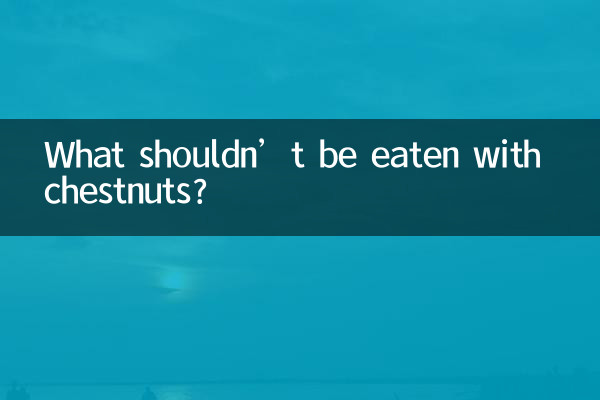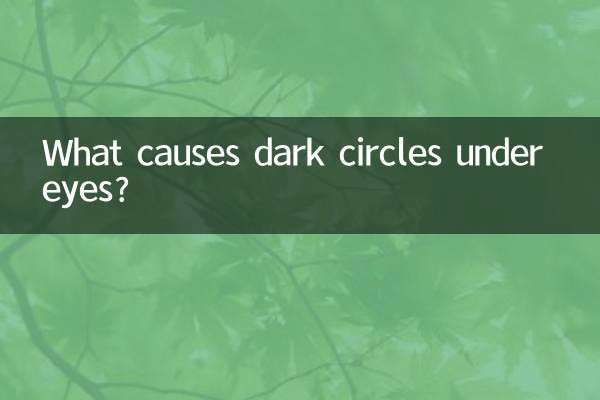What shouldn’t be eaten with chestnuts?
Chestnut is a seasonal delicacy in autumn. It is rich in nutrients and has a sweet taste. It is deeply loved by people. However, chestnuts cannot be eaten with all foods, and improper combinations may affect health or cause discomfort. This article will combine the hot topics and hot content on the Internet in the past 10 days to provide you with a detailed analysis of chestnut dietary taboos and provide structured data reference.
1. Nutritional value of chestnuts

Chestnut is rich in carbohydrates, protein, dietary fiber, vitamin C, B vitamins, potassium, magnesium and other minerals. Eating chestnuts in moderation can replenish energy and enhance immunity, but attention should be paid to their high starch content to avoid excessive intake.
| Nutritional information | Content per 100g |
|---|---|
| carbohydrates | 42.2g |
| protein | 4.2g |
| dietary fiber | 5.1g |
| Vitamin C | 24mg |
2. What should not be eaten with chestnuts?
The following are the chestnut dietary taboos that are hotly discussed on the Internet, compiled based on nutrition and traditional Chinese medicine theory:
| Foods that should not be eaten together | Reason |
|---|---|
| Beef | Eating chestnuts and beef together may cause indigestion and bloating, because both are rich in protein and fiber, which increases the burden on the gastrointestinal tract. |
| mutton | Traditional Chinese medicine believes that chestnuts and mutton conflict in nature and flavor, and eating them together can easily lead to internal heat or constipation. |
| persimmon | The tannic acid in chestnuts combines with the tannins in persimmons, which may form a precipitate that is difficult to digest, causing the risk of stomach stones. |
| High sugar foods | Chestnut itself has a high sugar content, and eating it with desserts and honey can easily cause blood sugar to rise quickly. |
| cold seafood | For example, eating crabs with chestnuts may cause diarrhea or gastrointestinal discomfort. |
3. Precautions for special groups of people
The following people should be careful when eating chestnuts or avoid pairing them with specific foods:
| crowd | Things to note |
|---|---|
| diabetics | It is necessary to control the intake of chestnuts (no more than 5-6 pieces per day) and avoid eating them with high-sugar foods. |
| People with weak gastrointestinal | Avoid eating chestnuts with high-protein foods such as beef and beans. It is recommended to eat chestnuts alone or with easy-to-digest porridge. |
| People with allergies | When eating chestnuts for the first time, try a small amount and avoid eating them with allergenic foods such as seafood. |
4. Healthy matching suggestions
Chestnuts can be paired with the following foods to enhance flavor and facilitate nutrient absorption:
5. Supplementary recent hot topics
In the past 10 days, in the discussion on “chestnut taboo” on social media,#chestnut and persimmon are poisoned by eating the same food#and#chestnutbeefbloating#The topic is hot. Experts remind: Some of the claims online that “foods are incompatible with each other” lack scientific basis, but caution is still needed for specific physical constitutions.
Summary: Although chestnuts are delicious, you need to pay attention to the combination taboos. Only by eating it rationally can you give full play to its nutritional value and avoid health risks.

check the details

check the details